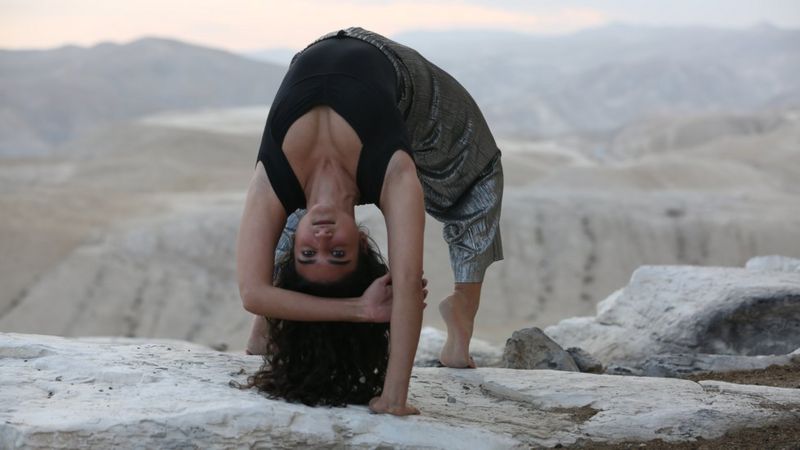Dance in the time of Corona:" Palestinian dancer, Rima Prensei " turns the heartbeat into music"
After the Palestinian dancer, Rima Prince, spent five years in Berlin, she decided to visit her family for a week at the beginning of last March, but this "short" visit lasted about nine months.
The closure of the airports due to the Corona epidemic was the reason that forced her to stay in Ramallah for a longer period.
This also caused her to cancel her travel to the Greek capital, Athens, to volunteer in the "Therapy by Dance" project with refugees through the "Save Place" Foundation.
"In the beginning, it was not easy for me to adapt to life in Ramallah again, because I enjoyed great freedom during my stay in Berlin, as it was easy to move between cities and countries without any barriers," says Rima.
However, she benefited from her stay in her hometown Ramallah and worked in dance projects with local bands.
Rima Prince: "The theater and the audience are what I miss the most"
Rima Prince's passion for dance began at the age of five, and at the age of seven, she began to learn it at a classical dance center in Jerusalem, until she moved to the art school to learn contemporary dance techniques, and she graduated at the age of seventeen.
In 2012, Rima joined the first contemporary dance troupe in the "First Ramallah Company" and held her first show in 2013 to record her first appearance in front of an audience at the Kasbah Theater in Ramallah.
Rima chose to travel to the German capital, Berlin, to complete her university education at the "Dance Works" Academy, where I learned there for two years and then graduated from the Berlin Academy of Dance in 2019.
Rima misses a lot for theater and says: "The theater and the audience are what I have missed the most for nine months. I missed the audience's applause after each show. This increased my determination to develop my dancing skills and it is the one that brought me to this stage of dance that I am today."
"Because of my stay in the West Bank, I had to cancel three dance shows in Europe. I was also working on several projects with refugees and other projects of my own," she says.
She adds, "But this experience had several positive aspects, including that I spent a lot of time with my family and worked on several unsupported projects with several dance groups from different cities in the West Bank, the last of which was the production of a dance video clip with local support, with independent dance groups and dancers."
Rima Prince: "Dancing through the heartbeat"
Rima feels that art in the Palestinian territories has not yet acquired its right, and that art, artists and theaters must be supported, and she says: “Recently I noticed that there are many talents in various types of dance in the West Bank, but no one adopts or supports this type of art. That this art should develop in the future due to the great demand among young men and women to dance in all its forms.
Contemporary dance is an art of body expression that emerged in the early twentieth century, and it is a style of expressive dance that combines elements of many other types of dance including modern ballet, jazz and classical dance. Rima chose it because it is "free dance and a means for a person to express himself."
The BBC's 100 Women: Inspiring Women of 2020
11 Arab women on BBC's list of most inspiring women
During her time in the West Bank, Rima works on several projects, including "dancing through the heartbeat": that is, for the dancer to rely on his heartbeat while dancing, and listen to it well, to find movements that help him express his inner feelings, dispense with music and convert heartbeats into internal music.
Rima dreams of building a dance academy in the Palestinian territories, as there is no academy to teach contemporary dance, so most Palestinians are forced to travel outside the country or apply for permits from the Israeli authorities to cross the checkpoints to learn to dance in Jerusalem.
The Corona epidemic that began at the beginning of last March has had a great impact on the cultural and artistic sector in the Palestinian territories, just like the rest of the world’s cities, forcing the Palestinian government to cancel hundreds of artistic activities and celebrations and close theaters.
BBC




